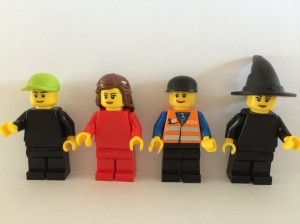One of the things my students find hardest is when they themselves make mistakes. Almost all of my students are perfectionists; they have higher expectations of themselves than anyone else in the room. And there is nothing harder than failing to meet your own expectations.
We talk a lot about mistakes and why mistakes are a good thing in our room. Our praise is never higher than when someone has made a mistake but stays calm, unless that is, when they’ve made a mistake, had a meltdown and still been brave enough to go back and try again. But even with lots of encouragement and lots of praise mistakes are still hard.
I remember a while ago now going out to see a student in another setting whose teacher was incensed that that he had threatened to kill her. He hadn’t meant it. He was in fact a lovely boy. He had just become so distressed by the feedback in his book on a piece of work he had been proud of. The teacher had just done her job, she had followed the marking policy of the school. The student got the book back and he no longer saw his wonderful piece of work, he saw only his mistakes. There was lots of praise in there. But he couldn’t see beyond the mistakes. He ended up excluded from school, in large part because of an incident that could have been prevented. What we have to realise is that although many students dislike making mistakes, the intensity with which students with autism feel about it is often much greater.
A word they’ve put in a book that they haven’t meant to, a spelling mistake or a smudge of ink where it doesn’t belong. When we get our students, the fear of making these mistakes can be so huge that they refuse to write. It’s something we have to combat. The first step is to a give a student the confidence that whatever they do you will be proud. Hugely proud.
For a long time, I don’t put corrections in their books; I just put a whole heap of praise. We have spelling books so we can work on the words we need to, and I set targets so students know what to focus on. But I don’t correct. I don’t underline spelling mistakes or add in punctuation. I just tell them and show them I think they and their work are great.
As time goes on I can talk verbally through work with students, I can even add corrections; many will even go through and make corrections themselves. But it doesn’t happen overnight. It’s a slow process; a process of talking about mistakes, of giving continuous praise, of building trust, of making mistakes yourself, of empathising when things go wrong, of helping to put things right. Of showing students that making mistakes is part of learning, part being human.
We are of course teachers, we are bound in many cases by marking policies, by rules, by inspections. We worry that if we don’t put corrections in a student’s book then someone will want to know why. But above all we are there for the students. We need to look at their needs and assess whether what we are doing is helpful. Some students with autism will have gone through this stage, they will already understand by the time you get them that it’s ok to make mistakes. But there are also those who won’t.
So talk to students, talk to their parents and talk to their previous teachers. Develop a system that works for you and works for them; a system which leaves their self esteem in tact. Keep what you write in their books unfailingly positive. If there’s something they didn’t do that you need them to, pop it on a post-it note as a challenge and give it to them at the start of the next assignment. Log it, or take a photo of it so you have a record of the feedback you have given. Cover your bases, but make sure you cover their bases too.
This way of marking won’t take any longer than the standard way, it’ll just take a few extra post it notes. It’s guaranteed to save many meltdowns and much distress. What’s more it’ll really help in building good relationships. Go on, give it a go. What have you got to lose?

Reblogged this on SENBlogger.
LikeLike